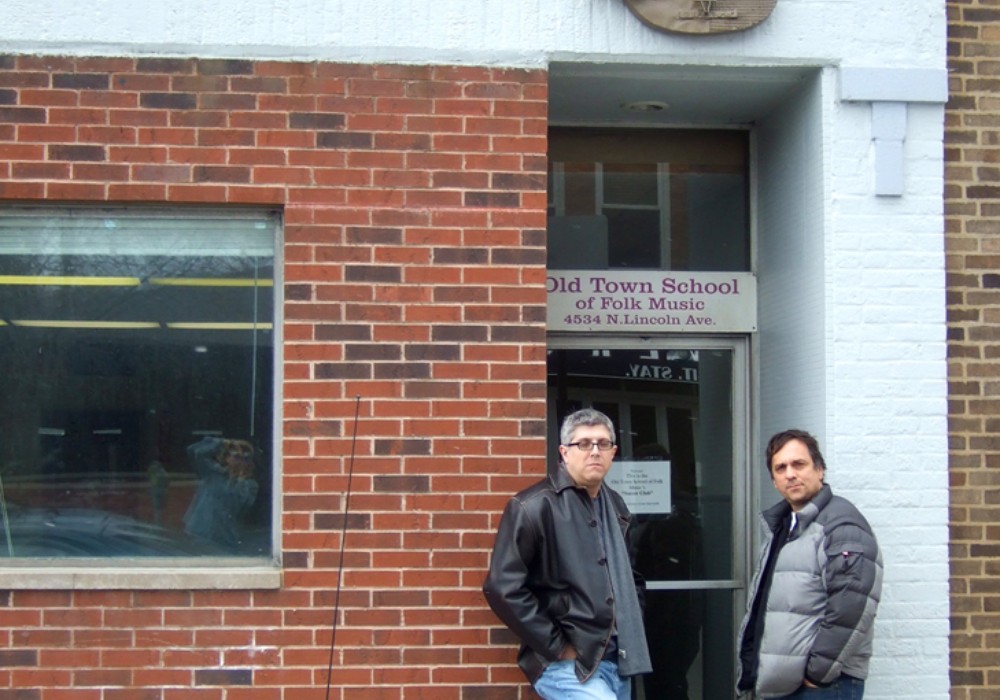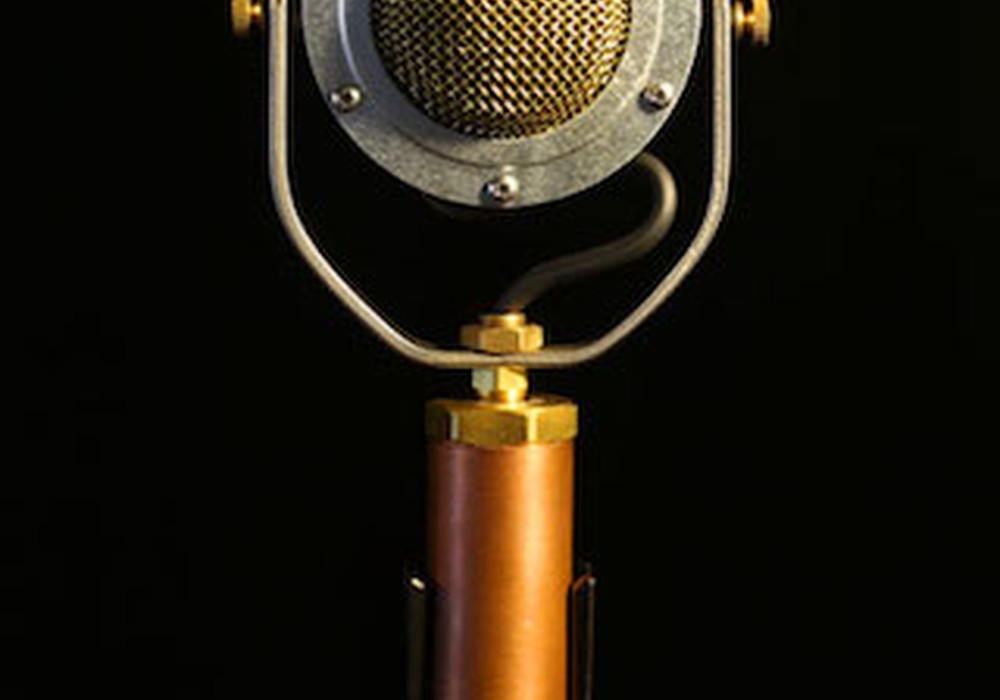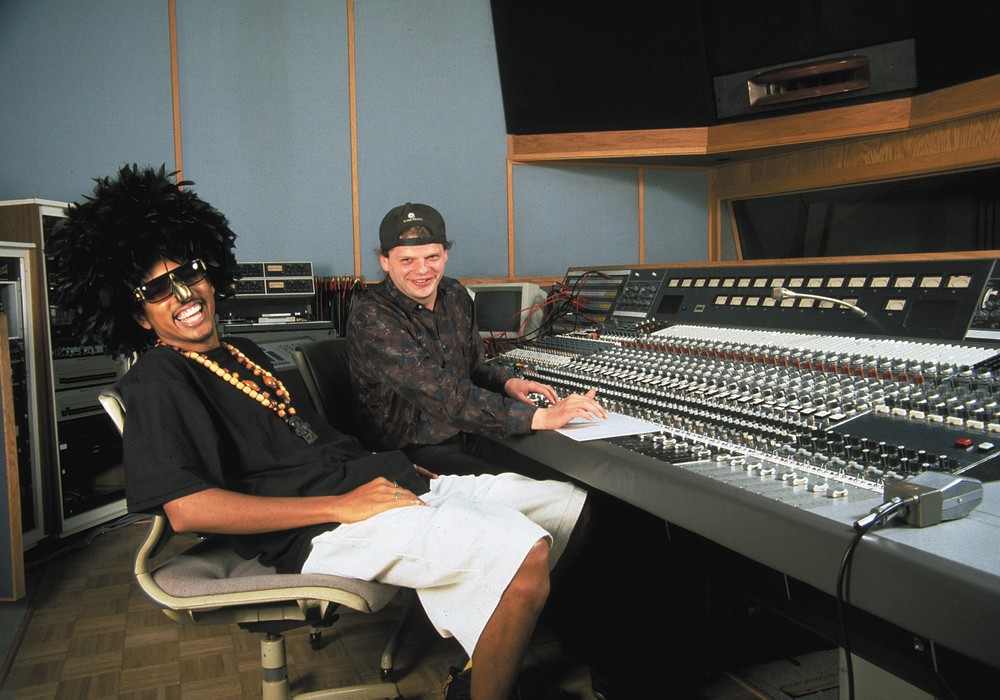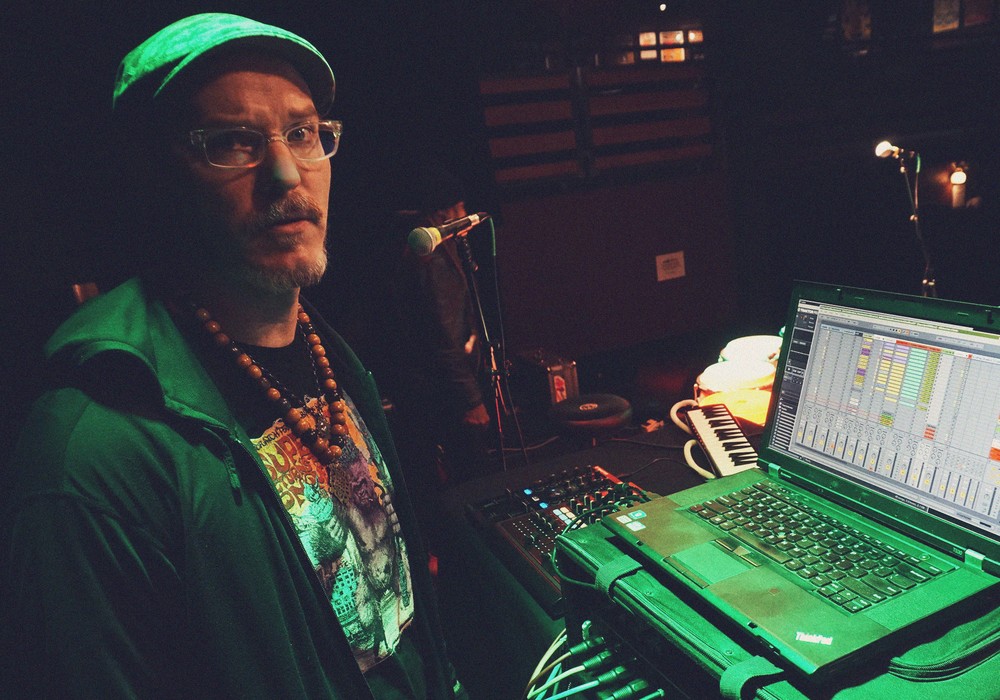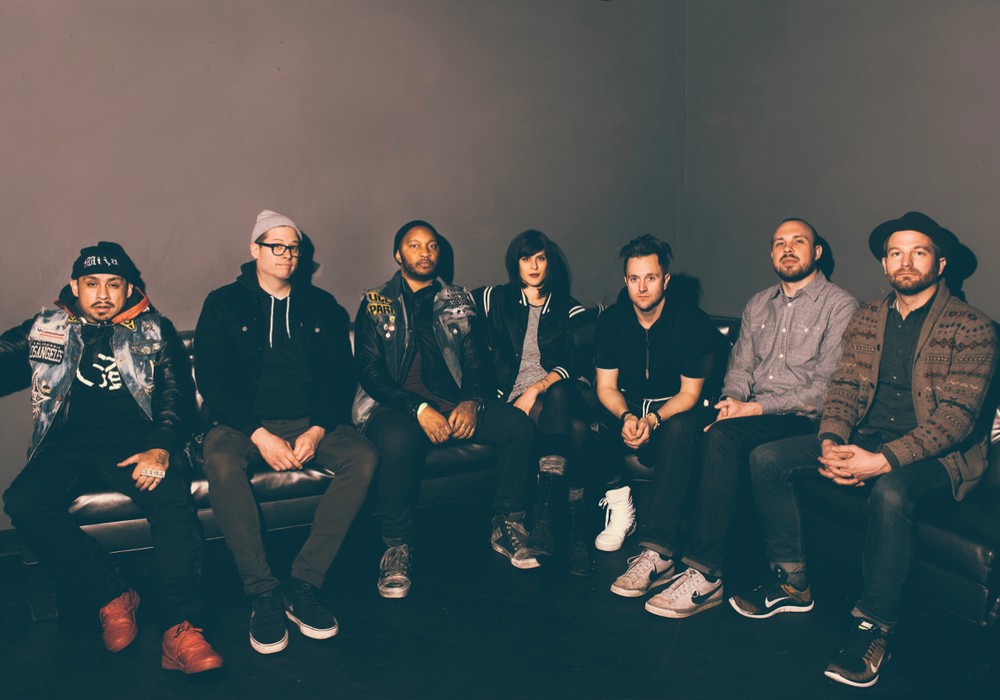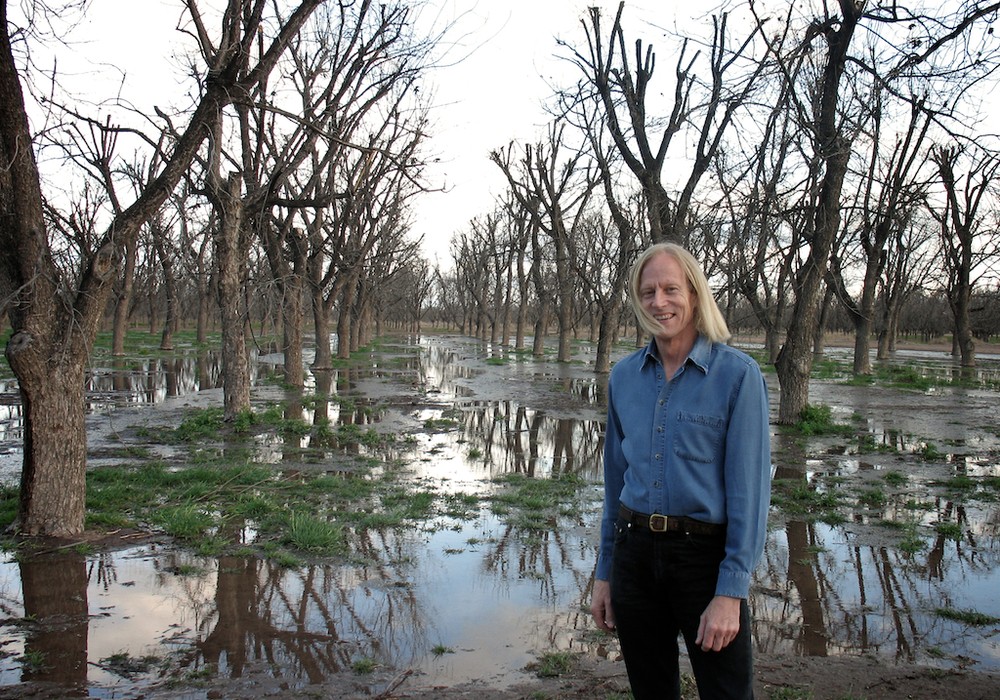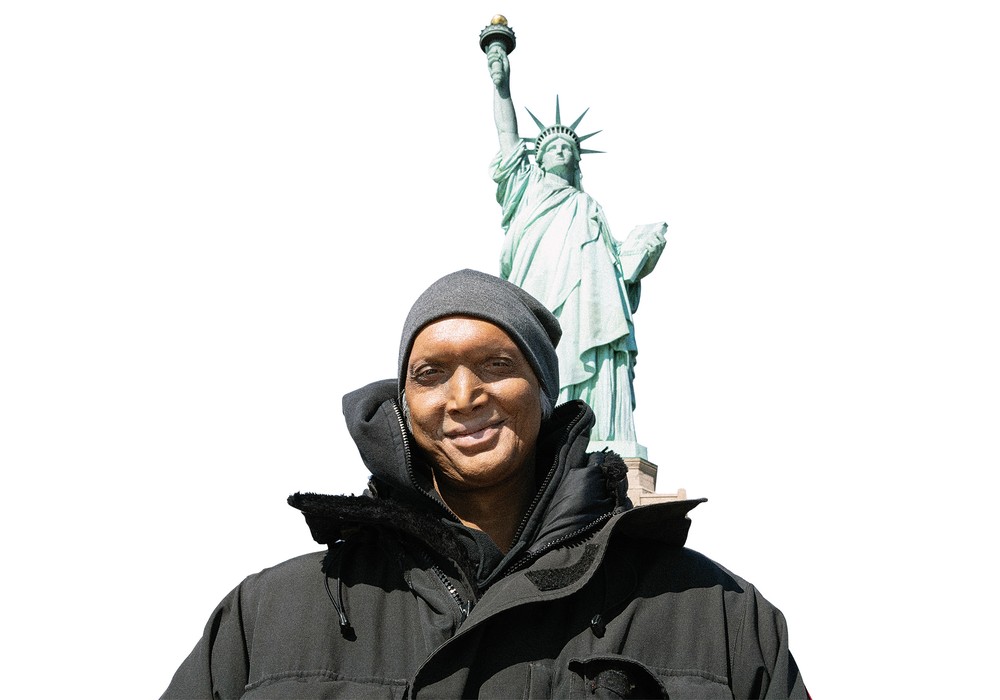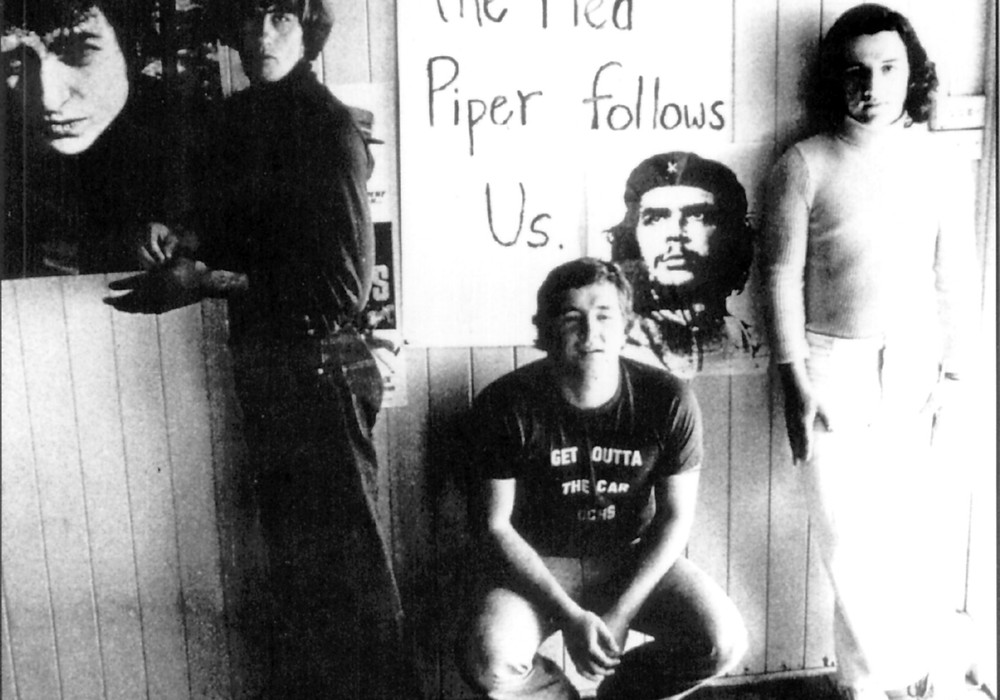When I was setting up our interview with musician/producer David J, he asked if I had any interest in speaking with Tony Green, the engineer/recordist for his last few albums. I was going to be in the Los Angeles area soon, so I agreed to drop by Tony's modest, yet awesome, home studio, Ear Gallery Music Studio. Set next to his home, and perched on the edge of a ravine, the location is a peaceful change from the hectic pace of L.A.
What other kind of things have you done in this space with your own music?
I released a CD probably four or five years ago. Then, like I said, I've done a couple films.
Where does the film score work come from?
This was just through friends, guys that I've met doing sound work. I also do sound work for corporate events, like A/V type stuff. That's the only way I made it through the recession. Diversity! I'd do a bunch of little things. Sometimes I'd work over at Cedars-Sinai and do sound for their conference department, and even some operating stuff in the operating department. They'd have all these docs with mics on and then an audience in an auditorium watching the whole thing.
Does it gross you out at all?
Yeah! I don't mind it so much if I'm watching on a monitor, but seeing it live...I can't take it.
That's crazy. I never thought about someone doing audio for that.
Yeah. We have a little booth set up and we do that.
It must be fun working with David J [Tape Op #106].
David's involved in like theater production, he wrote a book... he's doing all this stuff. We did this one session where he brought in Angela McCluskey. She's a great singer. I'd known her through Télépopmusik. She came in here and played a really cool session. We had trumpet and all this stuff. It wasn't one of David's songs. It was something old from the '40s. He likes some of those old songs. The play he was doing was about the Black Dahlia [The Chanteuse and the Devil's Muse], and she came in and sang on it. He comes over here for all kinds of odd little recording things. He's like, "Oh, I'm trying to send this one song to so-and-so, and I just need to put some bass on it really quick."
Were you playing jazz in Boston?
Yeah.
Did you go to Berklee at all?
No.
You're one of the rare ones.
I know! That's why I moved there though, but I couldn't afford it. I'd finished school in Denver at the University of Colorado. I went out to Boston and thought I'd work for a year, save up my money, get a place to rent, get everything in order, and then I'd start going back to school. But I got to playing with a lot of other musicians and people who'd went to Berklee. They told me not to go there. Go to the New England Conservatory instead. One of my favorite bass players teaching there was Dave Holland. Then I looked at the tuition there and it was like twice as much. Another year went by working, playing in bands, painting houses... whatever I could do. It just progressed for eight years like that.
But you kept playing.
Yeah. I was always playing and doing stuff.
Have you gotten any bass gigs lately?
Yeah. I've been doing a lot of little jazz things. Kind of cheesy parties and stuff, like playing background jazz and stuff at corporate events.
Situational music...
Yeah, exactly. I was even playing for a while in this Rat Pack tribute band, which is kind of fun. I'm doing a lot of those kinds of gigs and stuff. You kind of come home and just want to get back to the music you love.
How do projects find you?
It's pretty much just been word of mouth, meeting people. I don't advertise.
The days of the phone book, or even just Googling a studio, are a little bit gone.
I think sometimes people do still. If you're really an outsider and want to just dabble in music, maybe you'll just call a studio and go in and record this song you wrote.
I'll get that sometimes. It's sorta like, "Huh... maybe you should have just demoed that on your iPhone first." When I started 17 or 18 years ago nobody could even multitrack on anything. A 4-track maybe.
Right. Now everybody's got GarageBand.
Laptops have replaced a lot of the demo work. Like you say, would you have done a solo record if it was going to be a $20,000 studio expense?
Right, you wouldn't! It would scare you away. You'd be like... I kind of believe in myself, but I don't believe in myself that much.
I'm not crazy!
That kind of helped separate out the dross so to speak back in the day. If you really wanted to record an album, you had to have something going for you. Most people would go out there and try to get a record label behind them. Now, most people go out and try to get a recording and then try to find a record label, maybe, or they just try promoting it themselves.
I told my wife yesterday that the noise floor is higher. There's just so much happening.
It really is. It's hard to sift through, but then you find some really cool stuff. Every once in a while, something bubbles to the top. I don't think anybody would have jumped on something as a record label, because maybe it didn't have commercial potential, but sometimes it sounds really cool.
You know, that's the whole point of any of this is to capture art.
Exactly. Then worry about the rest later. This one project that I'm doing with my friend, the Space Dozer thing, is definitely that kind of project. We've kind of put no limits on ourselves. We come from all these different influences, different everything. Let's just throw it all in there, mix it up, and see what comes out. We won't be worrying about, "Oh, do the songs sound similar?" Sure, it'll probably be sitting under the console with all the rest of the CDs I've never sold. But now you don't even need to make a CD.
How do you approach gear acquisition for this place? Very slowly I'd assume?
Yeah, really slow. I worked down at this hotel downtown, the old Wilshire Grand. They tore it down now and are building something else there, but I was working down there for a couple years, and I found all these great old mics. They were back in this storeroom ... old stuff from the '50s and the '60s. I got this secret weapon. The Altec. It's a compressor amplifier.
The 1591A.
Yeah, it's the coolest sounding thing. We ran David's vocals through that with one of those old... what do you call those mics that harmonica players like to use?
A bullet mic?
Yeah, a bullet mic. We put it through that sometimes to get a really squashed sound on his voice. That was pretty cool.
Did you have to give them any money or were they just going to throw them out?
No! I was like, are you kidding? You can't throw that stuff out! There were other four-channel Altec things that I'd wish I'd gotten, but I dunno. Now I look online and people are selling them for lots of money. Mostly what people want are the transformers out of them because they just have that sound, those funky old transformers.
What kind of mics did you find in this space? I'm really curious.
All right, now you're asking for it. Some crazy stuff. Let's see. Look at this thing, the old birdcage mic they call it.
These are worth money. That's a beauty. I can't believe they were just going to toss everything in the dumpster.
This was my neighbor's actually. That's an old Western Electric.
618A.
That thing really sounds cool, especially through that old Altec. Feel how heavy that thing is!
It's amazing. Solid steel.
This I don't really know. I looked it up. There's like a transformer and there's supposed to be a windscreen on it. The element's there, but the windscreen is missing. I don't really know what that is, but is has to have something there. It doesn't work.
A lot of times the mics that are black were made for film production.
Those are some cool finds. Then I've got some of these from my neighbor too. He always used these Schoeps. They sound amazing on acoustic guitar or something. Just really beautiful.
Did you buy this stuff off him?
No, he just gave them to me! He was like, "Oh, I've got all these mics and stuff that I don't really use anymore."
How come older mics always look better?
It's almost like jewelry.
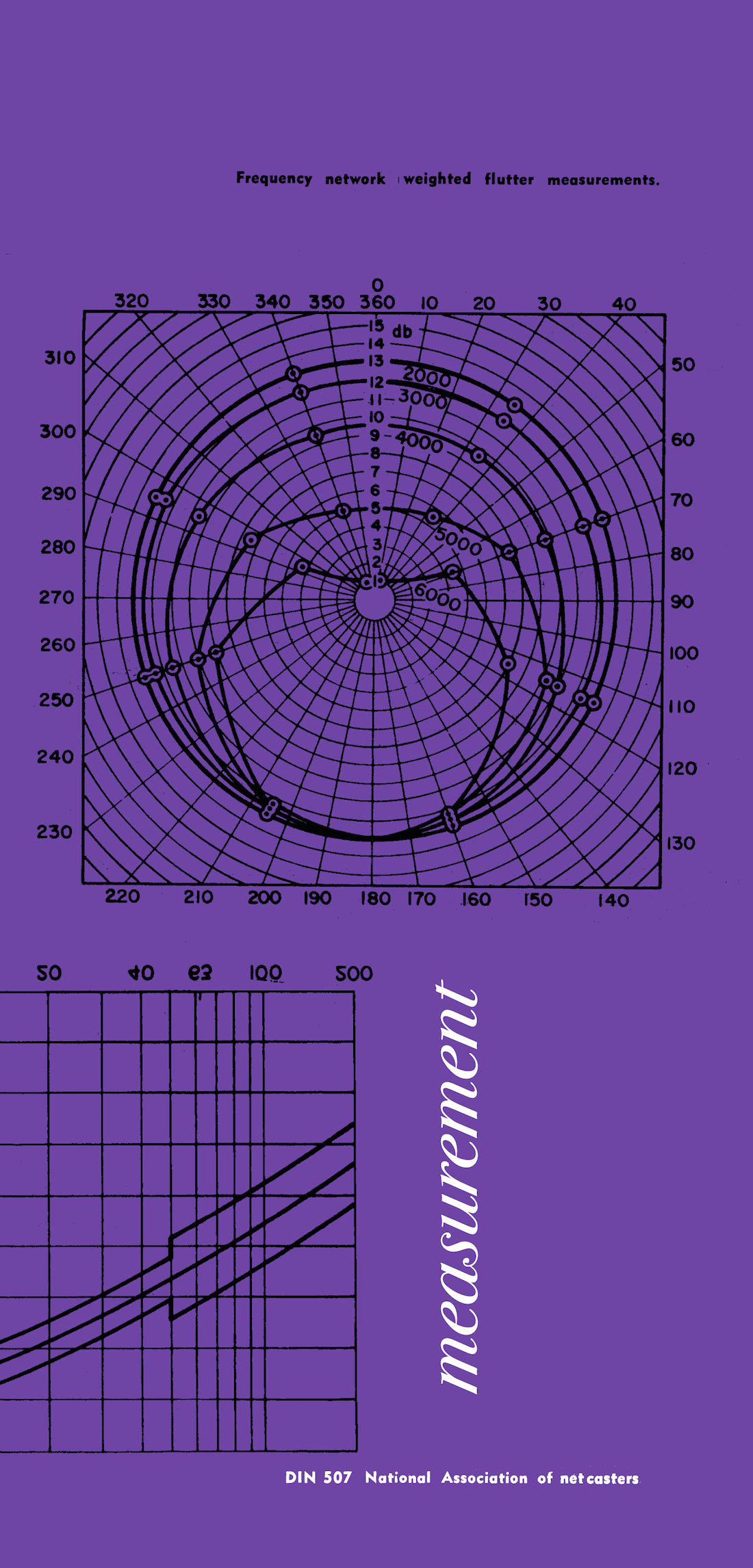

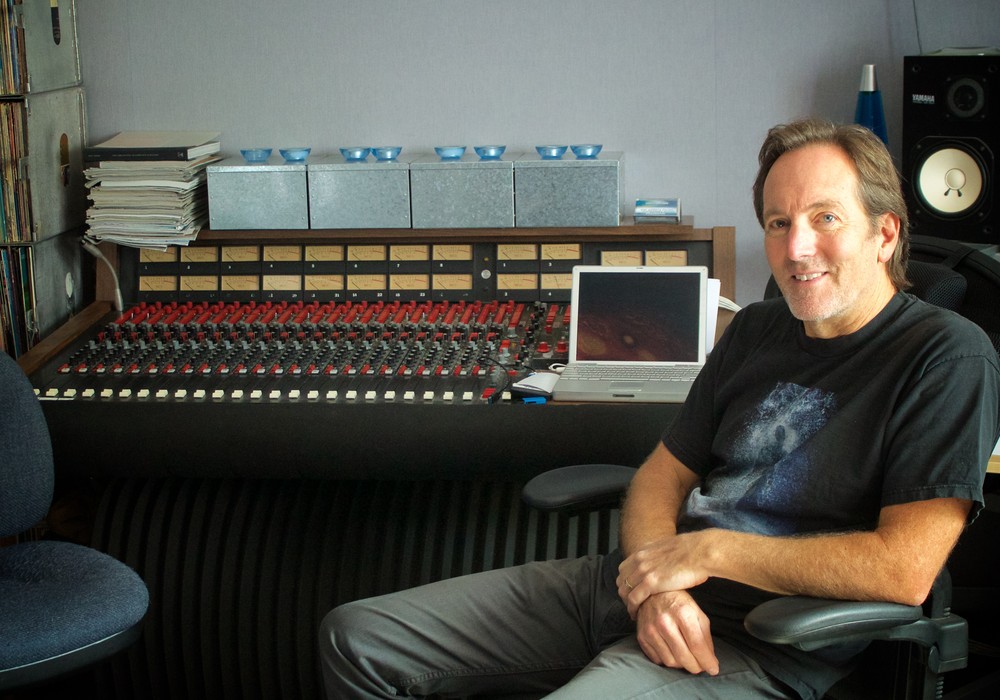
_display_horizontal.jpg)
